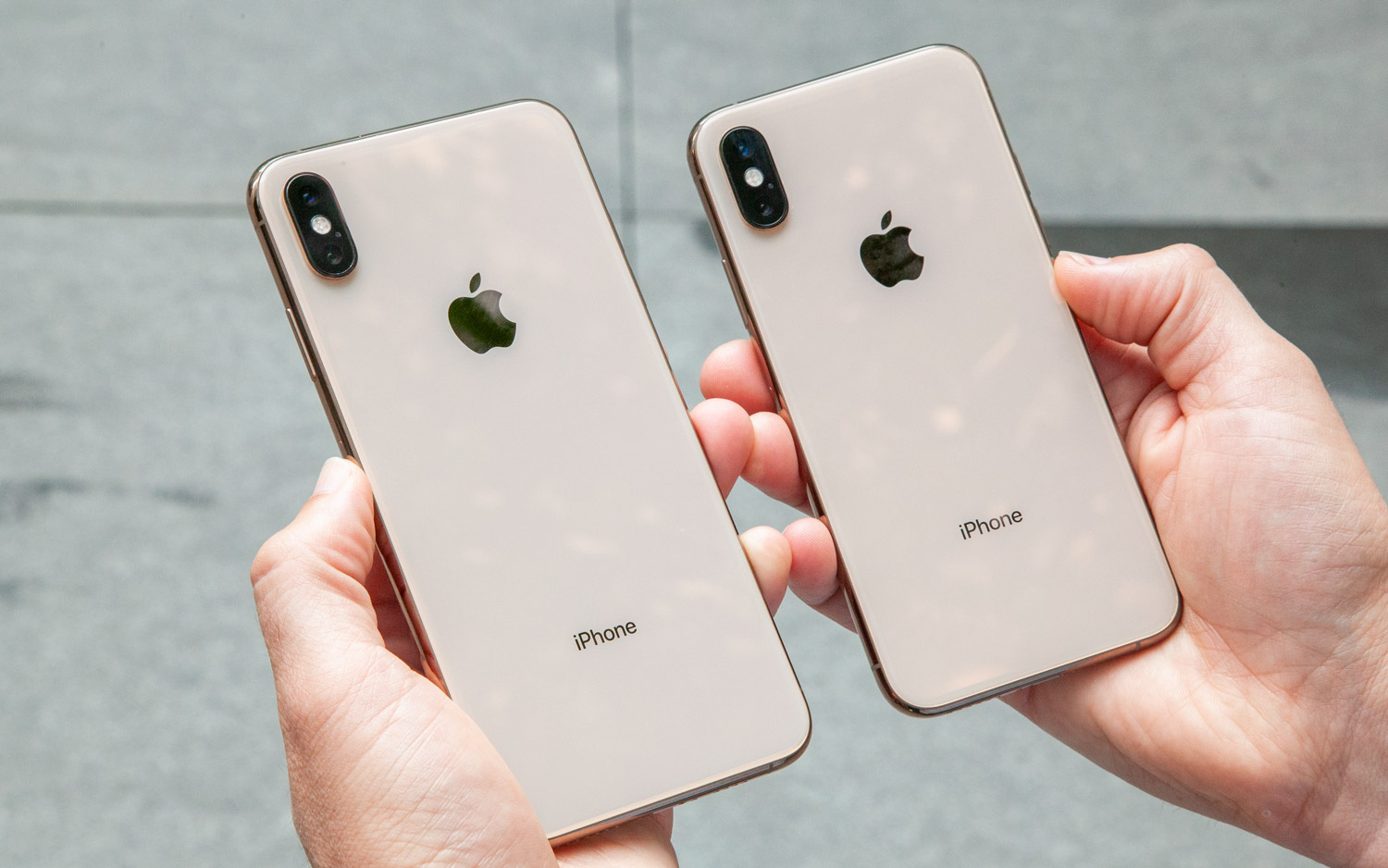Analysts: iPhone Sales Panic is 'Overblown'
A report claims that Apple is cutting production orders on its latest iPhones. But that doesn't necessarily mean the company's smartphone business is headed for a fall.
Are Apple's newest iPhones a flop? We really won't know for certain until Apple reports holiday sales figures early next year, but some early signs are certainly giving investors pause.

The latest red flag for some Apple watchers was a report in the Wall Street Journal today (Nov. 19) that Apple was cutting production orders on the iPhone XS, XS Max and XR. Specifically, the report says that Apple is telling suppliers it's cutting iPhone XR production by a third, with the possibility of slashing orders even further.
That follows Apple's fiscal fourth quarter report in which iPhone unit sales were flat, even though revenue from the sales of smartphones jumped 29 percent year-over-year thanks to sales of higher priced iPhones. Going forward, Apple says it's not going to provide unit sales, which has sparked further concern on Wall Street about how to gauge the health of iPhone sales.
Still, it may be too early for anyone to press the panic button about the iPhone's prospects.
"It's way too early," said Ramon Llamas, research director for mobile devices at IDC. "We've been down this road before where people say the sky is falling on Apple... and a couple of weeks later, they come back with earnings, and it's the best quarter ever."
MORE: iPhone XS or iPhone XR? Here's Your Cheat Sheet
"[The reports are] overblown. Let’s give them the holiday and a quarter of sales," agreed Stephen Baker, vice president of industry analysis at market research firm NPD. "These reports come out all the time, and mostly they prove to be way out of proportion with the market."
Get instant access to breaking news, the hottest reviews, great deals and helpful tips.
You only need to go back a year to see this very scenario in action. Apple had just released the iPhone X, early sales forecasts didn't look promising compared to expectations and some Apple observers seemed ready to pronounce the new phone a failure. Then Apple announced its holiday sales, which produced record revenue and profit, fueled in large part by the iPhone X and its higher asking price.
"It is too early to assume that the new iPhones aren’t selling well, especially since the supply chain-based sources said the exact same thing last year about the iPhone X, and were proven incredibly wrong when Apple released sales numbers," said Avi Greengart, research director for consumer devices at GlobalData.
Still, Apple's facing the same challenges with its new iPhones that are bedeviling the rest of the smartphone market. Instead of regularly updating their phones every two years, consumers now hold onto their phones longer and longer before opting for a new device. That's made projecting smartphone sales a trickier task than ever.
"That deadline [for upgrading] has shifted," Llamas said. "And we're still trying to wrap our brains around that."
Another issue that could impact phone sales in general and Apple's in particular are the lack of revolutionary additions and enhancements to the latest mobile devices. The latest iPhones are certainly improvements over their recent predecessors, particularly when it comes to design and camera. But if you've got an iPhone of recent vintage, you've still a device that's capable of taking great pictures, Llamas noted.
Other forward-looking capabilities, like the ability of the latest iPhones to run apps with augmented reality-powered features, may only appeal to a select slice of users. "For a lot of folks out there, does augmented reality really matter?" wondered Llamas, adding that he could ask the same question of other touted features in new smartphones.
Apple's strategy for combating the malaise in smartphone sales is to come out with phones with higher asking prices. The iPhone XS costs $999, while the XS Max pushes the price above the $1,000 threshold. Even Apple's inexpensive model, the iPhone XR, costs $749.
"[Longer phone upgrade cycles are] impacting every vendors’ sales," Greengart said. "Apple has dealt with this long term trend by adding more value to its phones and raising prices. Apple’s unit sales may not be growing, but average selling price has been."
Those higher selling prices keep Apple's phone revenue growing even if unit sales are flat from previous years. And whatever phones Appel does sell are likely to take advantage of services like the App Store, Apple Music, and iCloud storage. Revenue from the services segment reached $10 billion in Apple's last quarter, and Apple says its on track to double all the revenue it got from services in 2016 by 2020.
"Even if people are not upgrading, it's not like the bottom is falling out from revenue," Llamas said.
Philip Michaels is a Managing Editor at Tom's Guide. He's been covering personal technology since 1999 and was in the building when Steve Jobs showed off the iPhone for the first time. He's been evaluating smartphones since that first iPhone debuted in 2007, and he's been following phone carriers and smartphone plans since 2015. He has strong opinions about Apple, the Oakland Athletics, old movies and proper butchery techniques. Follow him at @PhilipMichaels.

